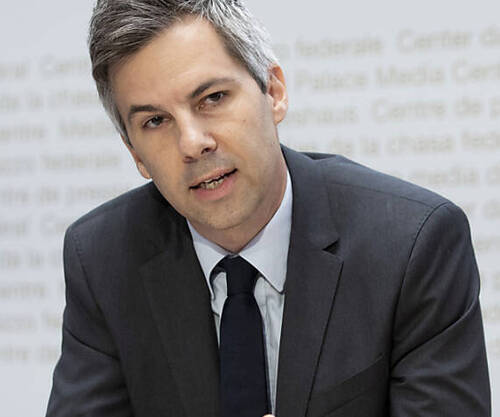“With our new paper, we want to show exactly what needs improvement in terms of future crises,” says Marcel Salati in an interview with Tages-Anzeiger. Overall, Switzerland has not done poorly in overcoming the pandemic crisis, but there is a lot of potential for improvement.
“Switzerland has very good preconditions for overcoming the epidemic. We have a strong economy, internationally interconnected sciences, good socio-economic conditions and an excellent health care system,” adds his colleague Christian Althaus.
This allowed Switzerland to get through the epidemic reasonably well with relatively mild measures. Anyway, this is not enough. Switzerland needs active crisis management in order to set a positive example in Europe.
Salati criticizes reaction time as a fundamental problem in Switzerland. “So the second wave was slowed down late, the consolidation came late, and the technologies were not often integrated well and quickly enough in fighting the crisis.”
But in a pandemic situation, sometimes days or hours are crucial. Therefore, Switzerland must prepare for the upcoming emergency. Structural obstacles that slowed action must be removed, and scientific knowledge and technological developments must be integrated faster in the fight against the epidemic.
Prepare for future crises
Through the “CH++” association, the two scientists wish to make a contribution to ensuring that Switzerland is better prepared for future crises at the scientific and technological level.
We suggest a crisis team like the one that was in place at the start of the pandemic. Epidemiologist Althouse says, in a crisis setting – perhaps also with decision-making powers – it can ensure a more efficient exchange between politics, authorities, and actors from the health care system, business, science and education.
Science does not have to determine this, Salati asserts. But the scenarios should be available as a basis for decision-making for politicians.
The two scholars highlighted Scandinavia as an example of positive measures to combat the pandemic. Even if they pursue slightly different strategies, what they have in common is that they rely on technology-based solutions and that they are politically and socially united behind the fight against the pandemic.
Thus, there are fewer voices skeptical about vaccination and measures. “It would also be possible in Switzerland, a country with relatively strong national cohesion,” Althaus says. However, the future crisis management team must take the anti-centralizing force in Switzerland seriously and think carefully about who should be on the crisis management team, how legitimate it is, and for how long it should remain, says Salati.
Switzerland has the appropriate tools at its disposal to manage the situation. However, in the fall of 2020, he was still too naive to assume that these tools would be used correctly right away. “Today we have more tools, with vaccination, but also with better medicines.”
However, he worries that people will not soon hear about new variants with intense training sessions or more prolonged Covid cases. “Let’s hope for the best, but at the same time let’s be prepared for the waves of the future!”

“Alcohol buff. Troublemaker. Introvert. Student. Social media lover. Web ninja. Bacon fan. Reader.”





More Stories
Huge radiation explosion from a magnetar – forschung.de
Principles and features of the folk nutritional principle
Science: The percentage of women in mint topics rises to a third